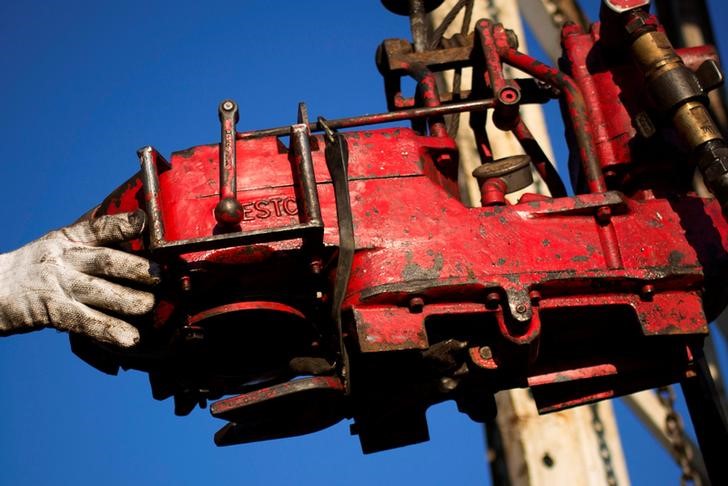By Devika Krishna Kumar
NEW YORK (Reuters) - Rates to store oil at one of the world's biggest trading hubs are surging, as traders globally scramble to secure space in tanks to cope with slumping demand from the coronavirus outbreak and a flood of supply from the Saudi-Russia price war.
The need for a place to park all that surplus crude is breathing new life into the market at Cushing, Oklahoma, the nation's hub for trading of billions of dollars of crude a day and the town that bills itself "the pipeline crossroads of the world."
Analysts estimate the glut could reach more than 1 billion barrels. Some of the excess crude will be absorbed by nations snapping up cheap oil for their strategic reserves, including India and the United States, but that will only mop up some of the supply.
Storage rates in the Caribbean, which have been weak over the past couple of years, have also strengthened over the past week, market sources said.
And oil majors have shown interest in storing oil offshore in tankers, shipping sources said, although most vessels have already been chartered for transporting crude instead as freight rates surge. "They can ask, but ship owners don't want it," one shipping source said.
Storage rates at Cushing, doubled over the past month, and were seen as high as about 50 cents per barrel per month by Friday, two traders familiar with the matter said. Storage for about 540,000 barrels at Plains All American's Cushing tanks for sublease was offered at 50 cents per barrel (cpb) for a term of one year, one source said.
"We average about 2 deals per day. Last week we booked 60 deals," said Ernie Barsamian, founder and CEO of The Tank Tiger, a terminal storage clearinghouse based in Princeton, New Jersey.
The United States currently has more than 450 million barrels in crude storage, not including strategic reserves. The drop in prices has sparked numerous storage inquiries, particularly at Cushing, the delivery point for benchmark U.S. crude futures.
Nearly 38 million barrels are currently parked there, half the about 76 million barrels in capacity. The rest of U.S. storage is at smaller tank farms or refining facilities. Inventories at Cushing rose more than 640,000 barrels in the week through Friday, traders said, citing data from market intelligence firm Genscape.
"Everyone and their mother is scrambling to fill up tankage," one trader said.
EXPORT FALL SEEN
Once a barometer for the health of U.S. crude supply, Cushing's market clout waned after Washington lifted a ban on U.S. crude exports in late 2015 amid the shale oil boom.
Companies have since spent millions of dollars building infrastructure to facilitate trading and storage at the country's Gulf Coast ports.
But with a wave of Saudi and Russian oil set to hit, U.S. crude exports are expected to plunge by about 1 million barrels per day (bpd) in April and May to about 2.5 million bpd, sources at the biggest merchants in the country said on Friday.
Domestic demand has also plunged, with U.S. gasoline prices plummeting to a record low as travel grinds to a halt due to the pandemic.
Storage at Cushing is held by large midstream companies including Plains All American (N:PAA), Magellan Midstream (N:MMP)and Enbridge (TO:ENB). Magellan said Monday that it is seeing increased interest for long-term crude storage in Cushing.
Plains did not respond to a request for comment and Enbridge declined to discuss utilization rates at Cushing, saying it contained customer-specific information.
The crude market is currently trading in what's known as contango, where forward prices are higher than immediate prices. That incentivizes traders to park barrels into storage in the hopes of selling them for a profit later.
The spread between front-month U.S. crude for April delivery and those for delivery in 12 months
Barsamian said that as the spread widens, the cost for storage will as well.
"The contango will begin to feed on itself and get steeper, unless the Saudis and Russia pull an about face."
